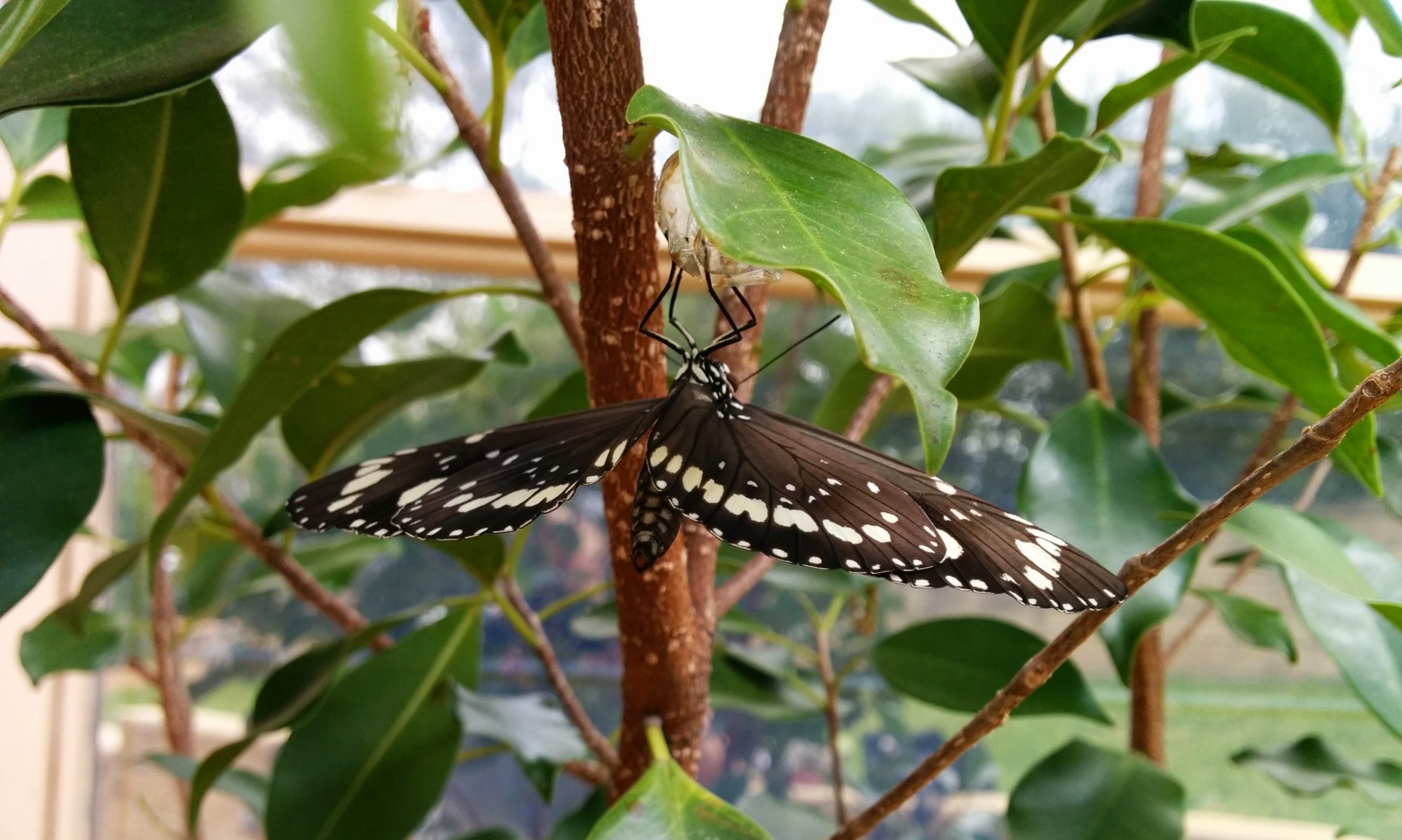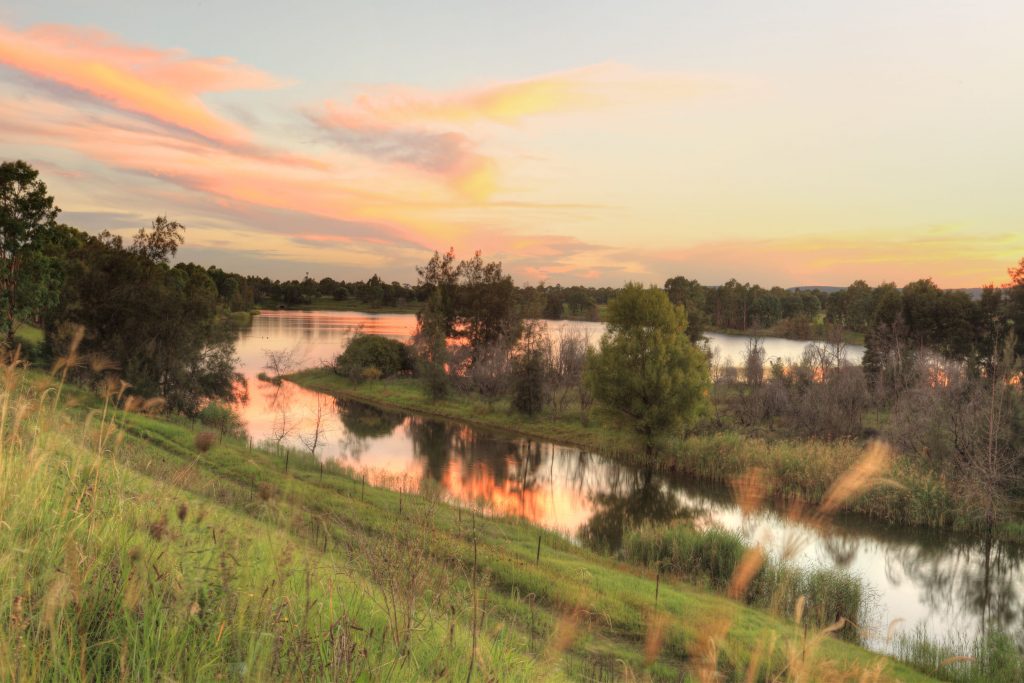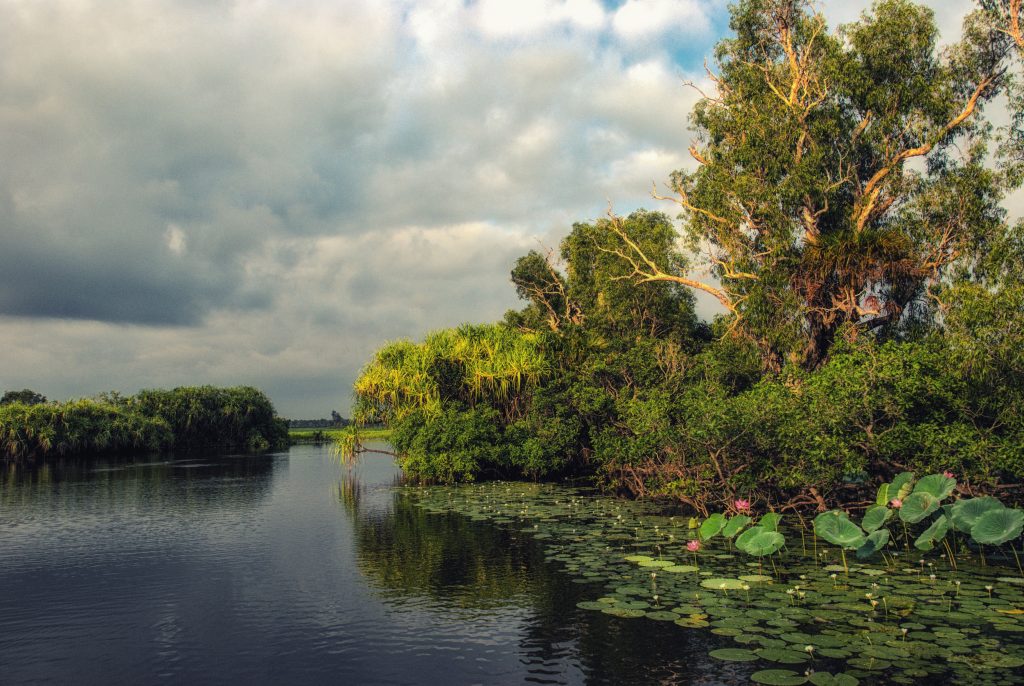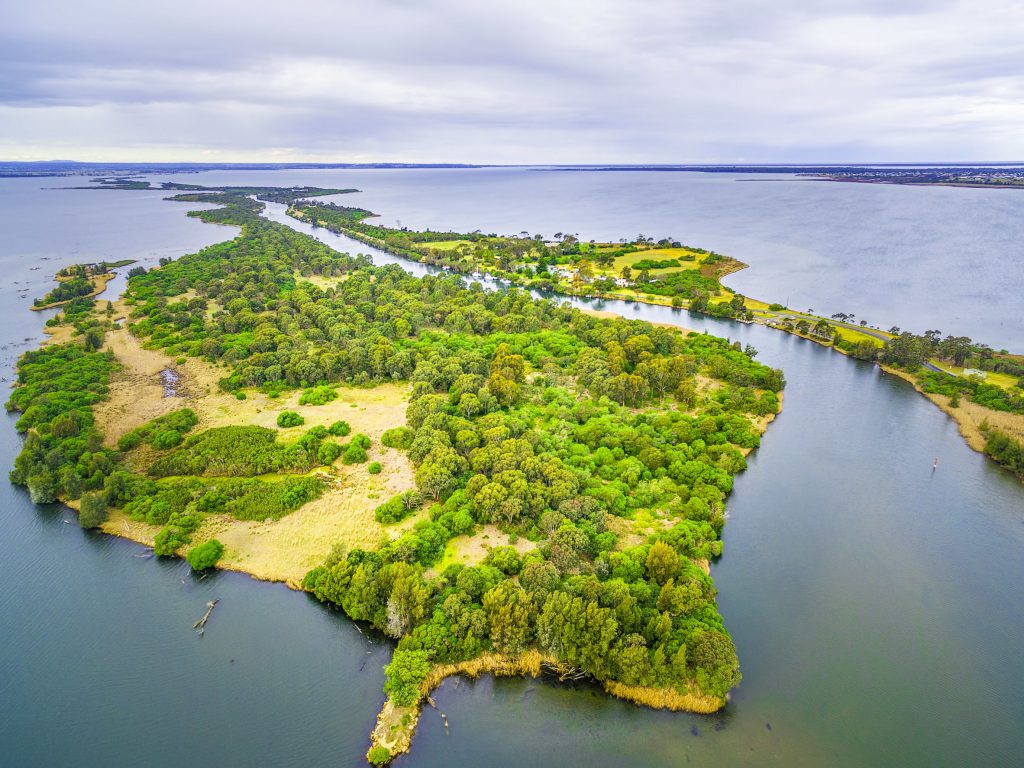Wetlands are areas of land saturated or flooded with water permanently or seasonally. Wetlands are important because 40% of the world’s plant and animal species live or breed in wetlands. Over 100,000 freshwater species have been identified in wetlands. Wetlands absorb and store water and help remove pollutant from our water.
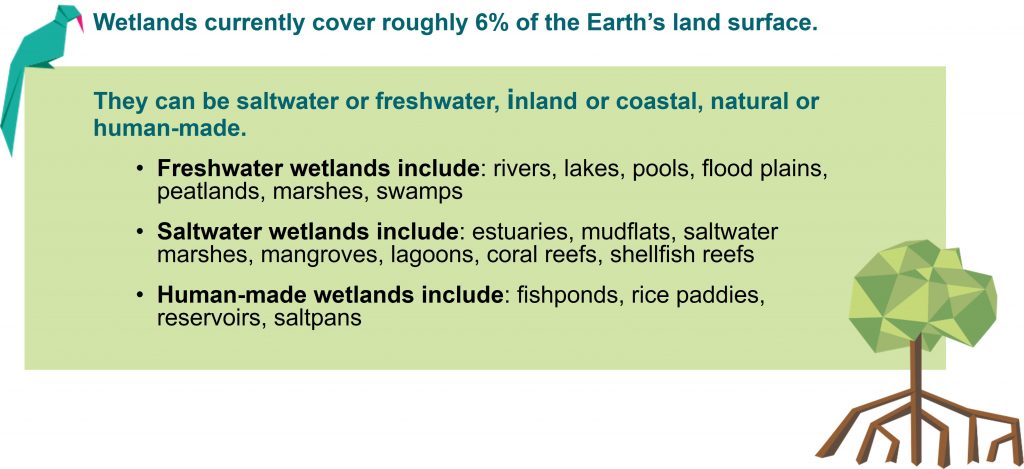
Did you know?
- Coastal wetlands are among the most biologically diverse places on earth
- Coral Reef and Mangrove forest protect coastlines from storm surges
- Wetlands are vanishing three times faster than forests with 35% disappearing since the 1970s. The causes of wetland loss include:
- Drainage and infilling for agriculture and construction
- Pollution
- Overexploitation of resources including overfishing
- Invasive species
- Climate change
Check the health of your local wetland with the Wetland Audit.

